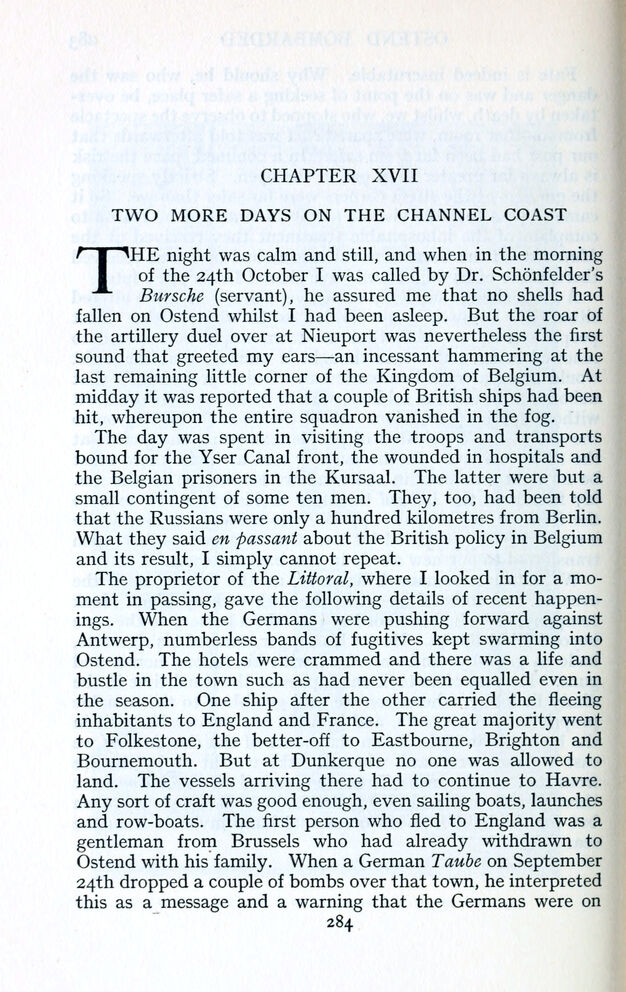
Full resolution (JPEG) - On this page / på denna sida - XVII. Two More Days on the Channel Coast

<< prev. page << föreg. sida << >> nästa sida >> next page >>
Below is the raw OCR text
from the above scanned image.
Do you see an error? Proofread the page now!
Här nedan syns maskintolkade texten från faksimilbilden ovan.
Ser du något fel? Korrekturläs sidan nu!
This page has never been proofread. / Denna sida har aldrig korrekturlästs.
CHAPTER XVII
TWO MORE DAYS ON THE CHANNEL COAST
THE night was calm and still, and when in the morning
of the 24th October I was called by Dr. Schonfelder’s
Bursche (servant), he assured me that no shells had
fallen on Ostend whilst I had been asleep. But the roar of
the artillery duel over at Nieuport was nevertheless the first
sound that greeted my ears—an incessant hammering at the
last remaining little corner of the Kingdom of Belgium. At
midday it was reported that a couple of British ships had been
hit, whereupon the entire squadron vanished in the fog.
The day was spent in visiting the troops and transports
bound for the Yser Canal front, the wounded in hospitals and
the Belgian prisoners in the Kursaal. The latter were but a
small contingent of some ten men. They, too, had been told
that the Russians were only a hundred kilometres from Berlin.
What they said en passant about the British policy in Belgium
and its result, I simply cannot repeat.
The proprietor of the Littoral, where I looked in for a mo-
ment in passing, gave the following details of recent happen-
ings. When the Germans were pushing forward against
Antwerp, numberless bands of fugitives kept swarming into
Ostend. The hotels were crammed and there was a life and
bustle in the town such as had never been equalled even in
the season. One ship after the other carried the fleeing
inhabitants to England and France. The great majority went
to Folkestone, the better-off to Eastbourne, Brighton and
Bournemouth. But at Dunkerque no one was allowed to
land. The vessels arriving there had to continue to Havre.
Any sort of craft was good enough, even sailing boats, launches
and row-boats. The first person who fled to England was a
gentleman from Brussels who had already withdrawn to
Ostend with his family. When a German Taube on September
24th dropped a couple of bombs over that town, he interpreted
this as a message and a warning that the Germans were on
284
<< prev. page << föreg. sida << >> nästa sida >> next page >>